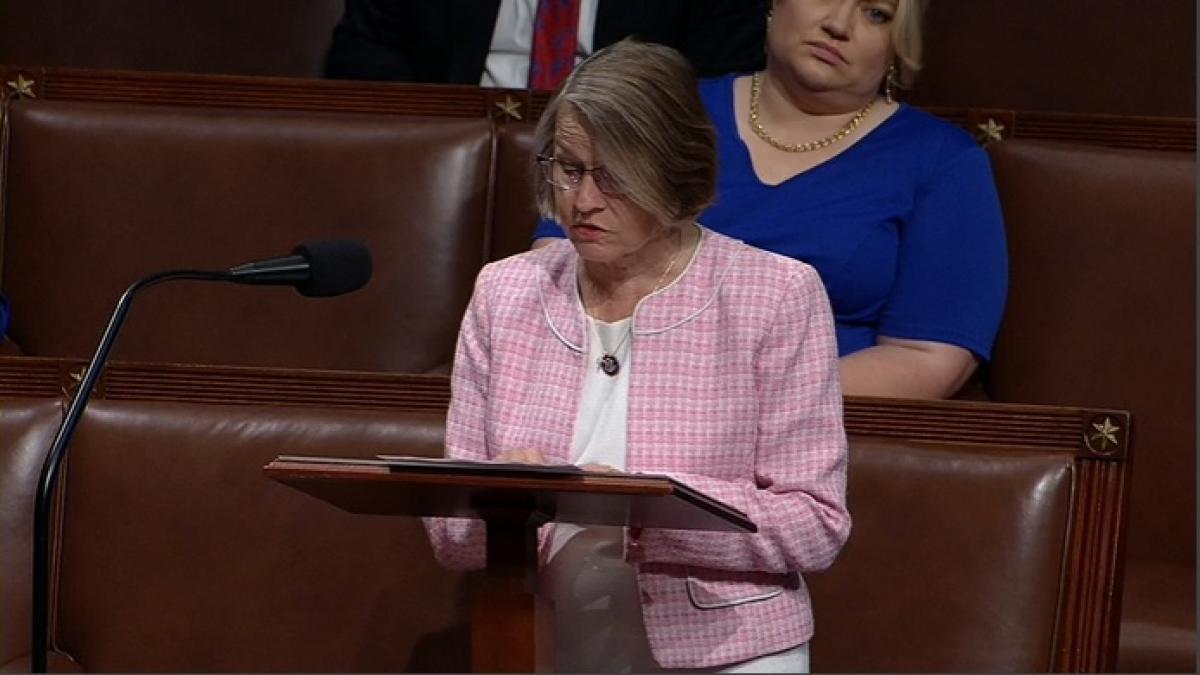Miller-Meeks, Eshoo, Kiggans, Burgess, Kelly PREEMIE Act Passes the House

WASHINGTON, D.C. — H.R. 3226, the “Prematurity Research Expansion and Education for Mothers who deliver Infants Early (PREEMIE) Reauthorization Act of 2023,” or the PREEMIE Act, legislation to improve pregnancy outcomes and infant health by continuing research and education programs aimed at preventing preterm births, passed the U.S. House of Representatives. The legislation was introduced by U.S. Representatives Mariannette Miller-Meeks (IA-01), Anna Eshoo (CA-16), Jen Kiggans (VA-02), Michael Burgess (TX-26), and Robin Kelly (IL-02).
“Babies born prematurely already have a steep hill to climb. The ‘Prematurity Research Expansion and Education for Mothers who deliver Infants Early (PREEMIE) Reauthorization Act,’ ensures that preterm babies have a better opportunity at a healthy start,” said Miller-Meeks. “I’m proud that this bipartisan effort to support research and educational programs to uncover the cause and impact of preterm births has passed the House and I look forward to getting it one step closer to becoming law.”
“Every baby deserves a healthy start and reauthorizing the PREEMIE Act will help us toward that goal. Since it was first passed in 2006, the PREEMIE Act has helped researchers and doctors identify the causes of premature births and work to prevent them. Still, every day in the U.S. one in ten babies is born premature. We cannot allow the U.S. to have one of the highest prematurity rates in the developed world. I urge my colleagues to swiftly reauthorize this important program,” said Eshoo.
“The PREEMIE Act has facilitated invaluable, life-saving research benefitting hundreds of thousands of expectant mothers and prematurely born infants,” said Kiggans, Vice-Chair of the Congressional Nursing Caucus. “As a primary care provider, I’m thankful for the positive strides that have been made in recent years to understand and prevent premature births. But there’s still work to be done. In 2021, one in ten babies in the U.S. was born preterm. I’m very proud that our House has passed this bill, which will ensure federal research on this issue continues!”
“I served as an OBGYN in North Texas for nearly 30 years, so I know firsthand the importance of giving every baby a healthy start in life. That's why I strongly support the PREEMIE ACT, which provides critical support to make that a reality,” said Burgess. “By renewing the CDC's research and programs on preterm birth, improving national data tracking, promoting healthy pregnancies, and establishing a coordinated effort across federal agencies, we can take meaningful steps to prevent preterm birth and reduce infant mortality. This legislation is a crucial investment in the health of our nation's children, and we urge our colleagues to act swiftly to ensure its renewal.”
“Babies born premature face significant and unique barriers to live full, healthy lives. I am proud to have helped lead the PREEMIE Act to ensure that premature babies have the resources they need to thrive,” said Kelly. “This bipartisan legislation will equip our medical providers and our communities with the best practices and resources to help produce better outcomes for premature babies and their mothers.”
Read the full text of the bill here.
Background:
- The PREEMIE Act reauthorizes critical federal research, education, and intervention activities to reduce preterm birth and infant mortality. The PREEMIE Act was first signed into law in 2006 to help reduce infant mortality.
- Specifically, the legislation reauthorizes the Centers for Disease Control and Prevention’s research and data collection on infants born premature and programs at the Health Resources and Services Administration aimed at improving the treatment and outcome of infants born premature. This includes grants to help doctors and the public understand the potential risk factors for having a preterm baby, such as smoking, and grants to screen and treat pregnant people for depression, and substance use disorders, including opioid use disorders. The legislation also authorizes a study to better understand the factors that lead to preterm birth and identify effective prevention and treatment options.
- In June, a bipartisan and bicameral group of lawmakers noted the growing support for the PREEMIE Act from 84 maternal and infant health organizations. In their letters to Senate and House lawmakers, the organizations express the importance of the legislation to improve pregnancy outcomes and infant health by continuing research and education programs aimed at preventing preterm births.
###
